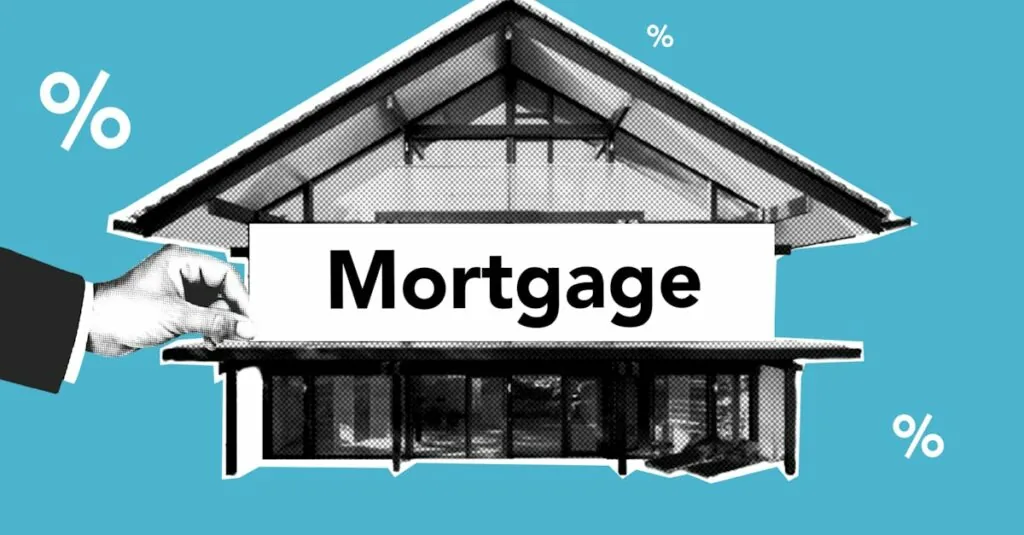Table of Contents
ToggleThinking about giving your home a facelift? Whether it’s a kitchen that could use a little TLC or a bathroom that’s seen better days, a credit union home improvement loan might just be your best friend. These loans are like the fairy godmother of home renovations, turning your dreams into reality without making your wallet cry.
With competitive rates and personalized service, credit unions offer a refreshing alternative to traditional banks. They understand that home improvement isn’t just about aesthetics; it’s about creating a space that feels like you. So why not take the plunge? Transforming your home could be just a loan away, and who wouldn’t want to sip coffee in a brand-new kitchen or soak in a spa-like bathroom? Let’s dive into how a credit union home improvement loan can help you achieve that dream space without breaking the bank.
Overview of Credit Union Home Improvement Loans
Credit union home improvement loans serve as a practical solution for funding renovation projects. These loans cater to various improvements, from enhancing energy efficiency to modernizing living spaces. Flexible loan terms often appeal to borrowers seeking manageable repayment options.
Competitive interest rates found in credit union offerings make them attractive compared to conventional lenders. Many credit unions provide personalized service, ensuring members receive guidance tailored to their specific needs. Approval processes frequently occur faster, allowing homeowners to begin projects without lengthy delays.
Credit unions often emphasize building relationships with members. This focus enables members to access financial education resources that enhance their understanding of home improvement loans. Understanding repayment structures becomes crucial, as many members aim to balance home upgrades and monthly budgets.
In addition, borrowing limits can be adjusted based on individual circumstances, enhancing accessibility for members. Credit unions prioritize the financial well-being of their clients, aligning loan amounts with reasonable income levels. Moreover, some credit unions offer loans specifically for energy-efficient upgrades, promoting sustainable home improvements.
Ultimately, credit union home improvement loans empower homeowners to transform their living spaces effectively. Taking advantage of these loans can lead to increased property value and enhanced quality of life. Exploring credit union options provides a promising pathway for those looking to invest in their homes.
Benefits of Choosing Credit Union Home Improvement Loans
Credit union home improvement loans offer several advantages that make them a strong choice for homeowners. These benefits include competitive interest rates and flexible terms that cater to individual needs.
Competitive Interest Rates
Credit unions typically provide lower interest rates compared to traditional banks. Members gain access to rates that are often more manageable. Additionally, these rates can help minimize the overall cost of the loan, making renovations financially easier. Homeowners can save significantly over the life of the loan, particularly when financing larger projects. Selecting a credit union loan can lead to substantial savings.
Flexible Terms and Conditions
Flexibility is a hallmark of credit union loans. Many credit unions allow borrowers to customize repayment schedules according to their financial situations. Longer repayment terms can result in lower monthly payments, easing the burden on budgets. Some credit unions also offer various loan amounts to fit specific project needs. This adaptability makes credit union home improvement loans appealing for a wide range of renovation tasks.
Eligibility Requirements for Credit Union Home Improvement Loans
Various factors determine eligibility for credit union home improvement loans, primarily focusing on creditworthiness and financial documentation. Understanding these requirements ensures potential borrowers meet specific conditions.
Credit Score Considerations
Credit scores play a crucial role in the approval process for home improvement loans. Most credit unions set minimum score requirements, typically ranging from 620 to 640. Higher scores lead to better interest rates and terms. Evaluating credit reports before applying helps individuals identify issues and improve scores if necessary. Regularly checking scores through credit monitoring services can boost confidence during the application process.
Documentation Needed
Several documents are essential to apply for a credit union home improvement loan. First, borrowers must provide personal identification, such as a driver’s license or Social Security number. Second, proof of income is significant, which may include recent pay stubs or tax returns. Additionally, documentation detailing the renovation project, including estimates or contractor bids, may be required. Collecting these documents beforehand can streamline the application process, ensuring timely approval and funding for home improvement projects.
Types of Home Improvement Projects Funded
Credit union home improvement loans can support a wide range of renovation projects. Renovating kitchens often tops the list, as homeowners seek to modernize these essential spaces. Upgrading bathrooms also ranks high, providing both aesthetic appeal and functionality improvements.
Enhancing energy efficiency plays a crucial role in many renovation plans. Homeowners frequently invest in new insulation, energy-efficient windows, and high-efficiency heating or cooling systems. These upgrades can lower utility costs while increasing overall comfort.
Another common project involves adding extra space. Expanding a home through room additions or finished basements allows homeowners to accommodate growing families. Such expansions often enhance property value, making them a strategic investment.
Outdoor improvements, like landscaping and deck installations, frequently receive funding as well. Creating outdoor living areas can transform backyards into entertaining spaces. Boosting curb appeal with new siding or roofing further enhances a residence’s visual impact.
Homeowners may also choose to repair or replace aging systems. Upgrading electrical wiring, plumbing, or HVAC systems ensures safety and increases efficiency. These improvements lay the groundwork for further renovations.
Focusing on cosmetic enhancements, many borrow funds for interior design updates. Fresh paint, new flooring, and fixture replacements can rejuvenate living spaces. Such minor changes often yield significant improvements in overall home aesthetics.
Credit unions often customize loan options to accommodate various project types. Members enjoy access to flexible terms and competitive interest rates. These personalized plans make it easier for homeowners to tackle specific renovation goals while managing their finances effectively.
Comparison with Other Financing Options
Credit union home improvement loans stand out when compared to other financing options. Typically, credit unions offer lower interest rates than traditional banks. This difference can lead to significant savings on renovation projects. Flexible repayment terms are another advantage, allowing borrowers to align their payments with their financial situations.
Personal loans from banks usually come with higher interest rates and less personalized service. This lack of attention may not fit the unique needs of homeowners looking for tailored solutions. Additionally, homeowners can face longer approval timelines with traditional lenders compared to credit unions, where expedited processes are common.
Home equity loans also present a financing option, but they require substantial equity in the property. Credit unions focus on the overall financial picture rather than just home equity. Consequently, homeowners without significant equity may find credit union loans more accessible.
Credit cards represent another alternative, but their interest rates can be much higher than those of credit union loans. Relying on credit cards for home improvements can lead to long-term debt and high-interest payments. In contrast, credit unions enable manageable financing with clear repayment plans.
Government programs offer affordable funding options, often tied to specific criteria. Navigating these programs can be complex, while credit unions simplify the process, providing straightforward applications and approvals.
Overall, credit union home improvement loans provide a competitive edge in financing options. Lower interest rates, flexible repayment terms, quick approvals, and personalized service make them a strong choice for homeowners aiming to enhance their homes.
Credit union home improvement loans stand out as a smart choice for homeowners eager to renovate without financial strain. With competitive interest rates and flexible repayment terms, these loans cater to a variety of projects while ensuring personalized service.
Homeowners can confidently pursue renovations that enhance their living spaces and potentially increase property value. By choosing a credit union, they not only gain access to tailored financial solutions but also benefit from a supportive community focused on their unique needs.
Investing in home improvements through credit union loans can lead to lasting benefits, making it a worthwhile consideration for anyone looking to transform their home.




